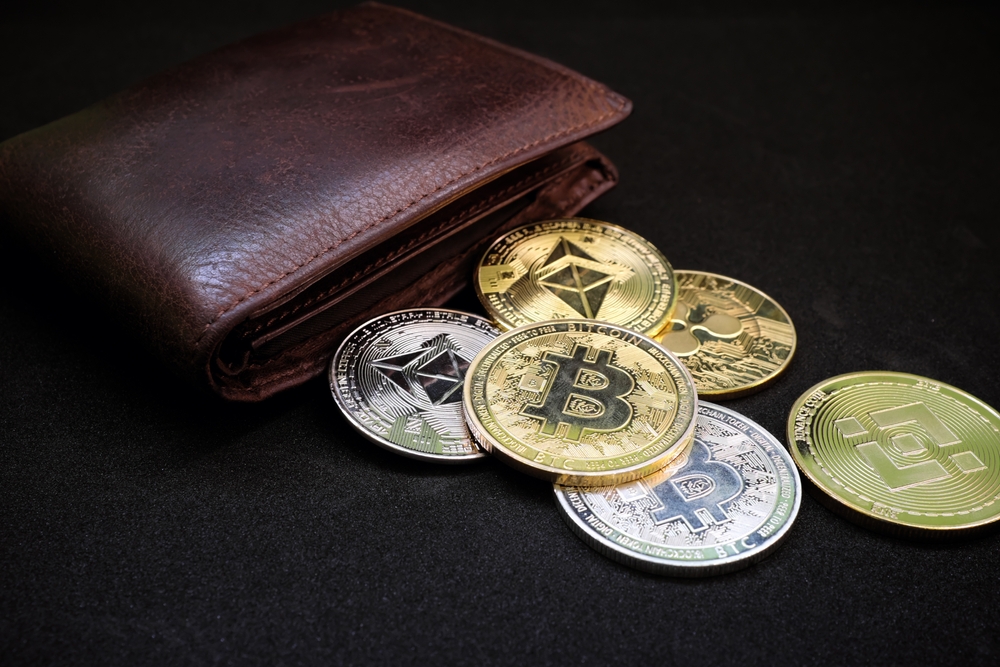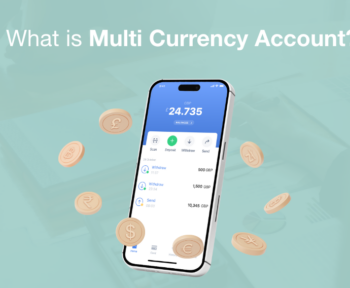In today’s world, where almost every payment process can be managed digitally, tokenized payment solutions have many benefits. Thanks to tokenized payment, which eliminates the possibility of fraud with digital tools in transactions made with real card information, the system creates a random payment plan for each payment and uses tokens in these payments.
In this way, the person making the payment continues their highly secure transactions by entering their credit card information only once during the registration phase. Each payment continues with tokens containing this credit card information. It makes many contributions to payment processes in terms of both security and time.
Today, many different digital payment platforms offer tokenized payment solutions. The primary goal of these solutions is to maintain security in payment processes. On the other hand, it also easily optimizes purchasing processes within online shopping and mobile applications.
Today, popular payment platforms such as Apple Pay and Google Pay are generally examples of tokenized payment technology. In these payment systems, users complete their card information and verification processes during the registration phase.
Then, they do not have to re-enter their card information and passwords during each payment. However, it is impossible for someone else to make a payment on your behalf with tokenized payment tools.
Because payments that are usually managed through tokens use biometric verification systems. Users can confirm tokenized payment orders in seconds, mostly through their mobile phones, using fingerprints or FACE ID tools.
Jeton is one of the successful examples of this level of security among reliable digital payment platforms. Join us in this blog as we explore tokenized payment, payment tokens, key benefits, tokenized payment plan, and more in detail!
Tokenized Payment in Detail
Tokenized payment is a solution where instead of re-entering credit card information for each payment and sharing it with third parties, credit card and payment information are recorded confidentially and securely as digital codes when registering to the platforms and the payment is completed.
Thanks to this system, your payment information is not shared with sellers or the platform while shopping. The party receiving your payment approves your payment through tokens and this process is usually completed with the assurance of global payment providers Visa and Mastercard.
For example, when making your subscription payment in a mobile application, you do not pause your transaction and re-enter your credit card information. This mobile application receives your payment through tokens that express your payment information.
In this way, it protects your data security by using the “token that can be used in payment” tool. Today, token payment solutions are used in many popular platforms such as Netflix, Spotify, Google Pay. In addition, token tools are frequently used in digital payment methods such as Jeton that care about the security of their users.
What Are Payment Tokens?
Payment tokens can simply be defined as the management of a digital payment process with digital codes instead of real card information. These digital codes usually function after users are verified with biometric verification methods.
When a user wants to make a payment on a digital platform, they do not re-enter their credit card information and password every time and complete the process in a short time and practically with “payment token” tools.
Each token is usually allocated to only one user. Therefore, it is impossible for someone else to make a transaction on your behalf.
Today, users on popular e-commerce platforms such as Amazon experience “token that can be used in payment” solutions. In this way, you can continue to manage payment processes only through the token defined on your behalf in the Amazon system.
The Payment Flow for Tokenization
The “Tokenization payment” flow continues its function with the following steps:
- The user enters his/her card information into the payment system. For example, to make a payment with Jeton, one of the most reliable digital payment platforms, it would be sufficient to enter your card information when registering.
- Your information is usually securely recorded with payment providers such as Visa and Mastercard.
- The system creates a token representing the card information
- This token is used in payment processes for your periodic payments such as subscriptions
- Real data is not shared with third-party sites or platforms
Thanks to the tokenization solution, your personal data, credit card information and password are not shared with third-party sites, thus maintaining your high-level security. The payment flow for tokenization can be summarized as follows.

Key Benefits of Tokenization
Tokenization offers many different opportunities and advantages to individual users and businesses as it is an up-to-date and digital solution. The most obvious advantages of tokenization solutions can be listed as follows:
- High-Level Security: Card information is managed by payment providers such as Visa and Mastercard without being shared with third-party sites and platforms.
- Provides PCI-DSS compatibility: Since data related to your card is not stored, businesses are freed from sanctions that increase their areas of responsibility and become more flexible in terms of regulation
- Improves customer experience: Individual customers complete their shopping in a short time. Your token on a specific e-commerce site is not used on another site, thus ensuring the security of customers for each site during the token payment plan process.
These advantages are quite important in today’s modern world where the number of digital payment platforms is very high. Since almost all of us now manage many of our shopping with digital payment tools, it is beneficial to prefer those that use token payments infrastructure such as Jeton.
How Does Tokenization Work in Payments?
Tokenization in payments is a digital payment solution that continues its function with the following steps:
- First of all, a token is created when the card information is first entered into the system.
- This token consists of codes that express this information.
- The seller cannot make payments outside of this token and cannot access the card information through the token
- During this process, financial responsibility is usually protected by the infrastructures provided by reputable payment platforms such as Visa and Mastercard
- Your card information in tokenized form is not shared with another institution or intermediary
Thanks to these steps, tokenization continues to work in payments. Each platform creates a special tokenization for each customer. In this way, shopping with the same token information on another platform is also prevented.
What Is an Example of Payment Tokenization?
For example, when a customer who shops through Amazon saves their card information to Amazon, Amazon and the sellers here cannot access this customer’s card information, they can only receive payment via token, this happens with the customer’s approval.
In addition, it is known that platforms such as Netflix and Spotify, where there are monthly or periodic payments, receive payment via tokenized card information.
The user usually only enters their card information at the beginning, these platforms include this card information in the “token payment plan” and collect their payments periodically via this token.
You can now manage reliable asset transfers with Jeton and enjoy security solutions such as token payment in your online payment situations.
What Is a Token Payment Plan?
Token payment plan is simply a payment system where digital codes called tokens are used instead of using the customer’s payment data. Since we manage many of our needs with online payment tools today, we should know that platforms that offer token payment plans are more secure. Periodic payments should be made in subscription services.
Users do not want to re-enter their credit card information every time to renew their payments. Thanks to token payment tools, the payment is quickly approved after a biometric verification process and the platforms receive the payment via tokens.
One of the most popular services that offers token payment plans is Netflix. Members on this platform usually make monthly or annual payments. In these periodic payments, users do not enter their payment information every time. However, this does not mean that data such as credit cards are on these platforms.
Payment providers use digital codes called tokens that represent this information, and thus your unique tokens are created for each platform. In the modern world where almost everything is managed with digital payment tools, the token payment system is a great solution proposed to protect the security of users.

How Does a Token Payment Plan Work?
Generally, a token payment plan operates with the following steps:
- The user must enter their credit card information when registering to the system or making their first payment, and must confirm that they have shared their card information with multi-factor authentication methods, including the CVC code.
- This information is tokenized through the platform, and each of your cards represents a token.
- This token is optimized by the platform to only withdraw the expected amount in your periodic payments
- Each token represents a card on a platform, and third parties can never access your information
Simply, the tokenization payment process consists of these steps. However, different platforms may evaluate these steps in different ways. However, the basic operating principle is the same in all of them.
The main goal here is to ensure that payment processes continue periodically in accordance with security standards without receiving the customer’s credit card data.
Advantages of Token Payment Plan
There are numerous advantages of token payment plans for both users and platforms. The most important of these can be listed as follows:
- Security: Tokens containing digital codes are offered instead of real card information, and your security is protected in every payment process
- User-friendliness: There is no need to re-enter card information in every payment process, and you can manage payment processes in a short time
- Business continuity: There is no disruption in periodic payments such as subscriptions
- Compatibility: It is easier for businesses that generally run online commerce projects to work in compliance with standards such as PCI-DSS regarding payment processes thanks to token payment solutions.
These advantages are not limited to increasing the security of individual users, but also offer flexibility for businesses.
If you have a business project where people can shop with online payment tools, integrating with tokenization solutions will save you from all regulatory burdens regarding payment processes.
Which Types of Businesses Need to Use Tokenization for Payments?
The types of businesses that most frequently benefit from tokenization payment tools can be listed as follows:
- Subscription-based platforms: The periodic payment processes of platforms such as Spotify, Netflix, and Youtube, which have reached millions of subscribers today, can be managed with token solutions.
- E-commerce platforms: Token payment solutions are frequently used in popular e-commerce sites such as Amazon
- Mobile applications: In-app purchase processes in mobile applications such as games can be managed with token payment tools
- Digital payment platforms: Reliable digital payment platforms such as Jeton use tokenization technology for payments made to different institutions and platforms.
In such business types, tokenization allows the payment flow to continue in a practical way and in a way that protects the security of users.
Is Payment Tokenization Right for My Business?
If you are wondering whether tokenizing solutions are right for your business, you should first determine which sector your business operates in and which payment methods it integrates with. If you frequently receive payments by credit card, token payment solutions will definitely suit you.
Also, if you offer online payment methods to your customers while managing your business, you should definitely work with tokenization payment tools. At this point, it may be good to benefit from reliable digital payment platforms such as Jeton.
Additionally, if you offer a subscription-based service or product to your customers, want to protect user information in accordance with international security standards, and are a business suitable for credit card payment methods, you should benefit from the token payment plan infrastructure.
Tokenized payments are transforming the way we secure and process digital transactions. By replacing sensitive card or account details with unique tokens, this technology minimizes risks and enhances trust—making every payment faster and safer.
For businesses and individuals alike, tokenization is the key to a seamless and secure payment experience in today’s digital world. Take control of your digital payments with Jeton and Jeton Card solutions.
With Jeton, you can enjoy the benefits of tokenized, highly secure transactions alongside advanced protection like Two-Factor Authentication. Open your Jeton account today and experience the future of safe and smart payments.
Download the Jeton App from Google Play or the App Store and keep every transaction secure—anytime, anywhere!


